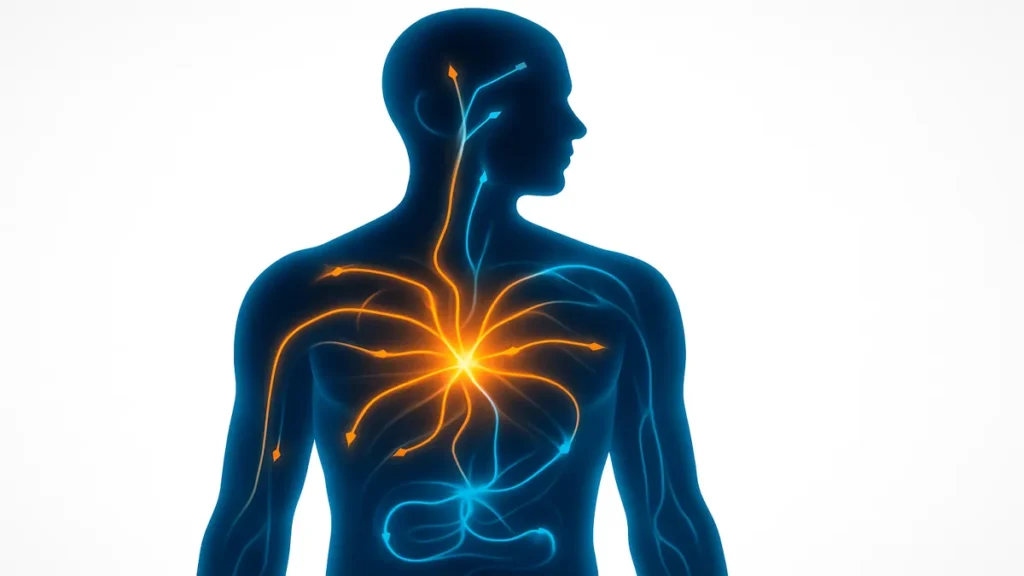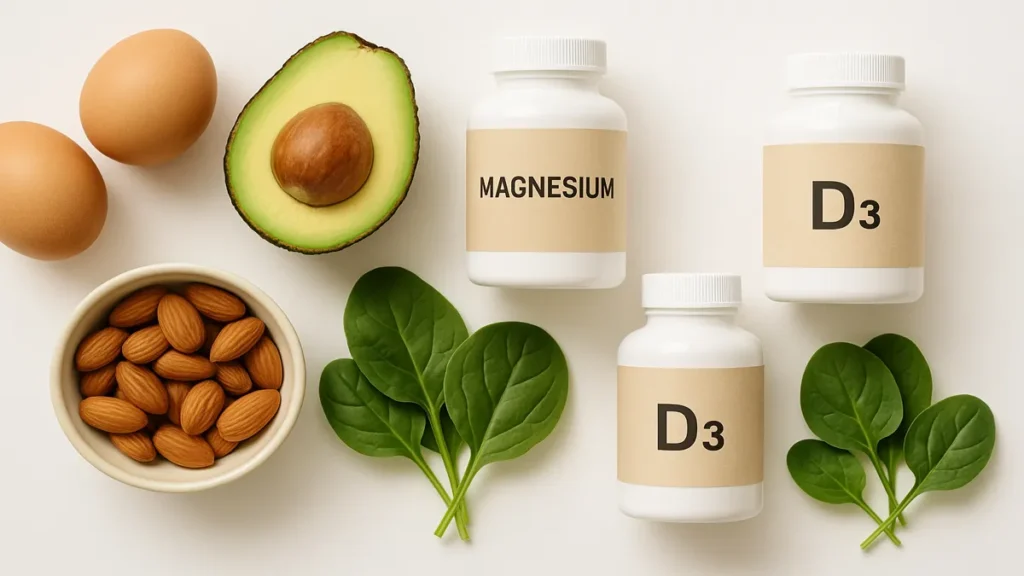
Does intermittent fasting slow metabolism? That’s the question many ask once the initial excitement wears off. At first, fasting seems simple and effective. You skip breakfast, feel lighter, and maybe even lose a few pounds. But soon, doubt creeps in. What if eating less actually slows your metabolism? What if you’re burning fewer calories and harming your long-term results?
You’re not alone. Many people, especially those with fast metabolisms or fitness goals, wonder if fasting could backfire. The fear is real, and it’s valid. Here’s the truth: intermittent fasting affects metabolism, but not always in the way you think. In fact, in the short-term, it may even speed things up. But under certain conditions, it can also lead to metabolic slowdown.
So, what makes the difference? Timing. Nutrition. Stress. Recovery. The key is to understand how your body reacts and how to support it along the way. This article breaks it down for you. You’ll get science-backed facts, practical advice, and easy steps to protect your energy and progress.
👉 Worried about your metabolism while fasting? Here’s how to protect it naturally and safely.
What Is Intermittent Fasting, Really?

Intermittent fasting means eating only during specific hours of the day. You stop eating for a set period, then resume. The most common method is 16:8. You fast for 16 hours, then eat within an 8-hour window. Other types include 5:2, where you eat normally for five days, then reduce calories for two. OMAD, or one meal a day, is more extreme.
This approach became popular for a reason. It’s simple, flexible, and doesn’t require calorie counting. Many find it easier than dieting every day. It fits busy schedules and doesn’t cut out food groups. Some use it for weight loss. Others use it to improve energy, focus, or digestion.
However, fasting is not the same as starving. Intermittent fasting involves planned eating windows. You still eat enough to meet your body’s needs. Starvation is unplanned, severe, and often harmful. That’s a key difference.
Understanding the method matters. When used wisely, fasting can support health. But like any tool, it depends on how you apply it.
How Your Metabolism Works During Fasting

When you fast, your body uses stored energy instead of incoming food. First, it burns glycogen, the sugar stored in your liver and muscles. This gives quick energy for the first hours without food.
Once glycogen runs low, the body shifts to ketosis. In this state, it breaks down fat for fuel. This switch often happens after 12 to 24 hours of fasting, depending on your routine and lifestyle.
During this process, your metabolism doesn’t crash. In fact, research shows that noradrenaline, a fat burning hormone, increases during short-term fasting. This hormone helps you stay alert and maintain energy. Some studies even suggest a temporary boost in metabolic rate during the first days of fasting.
This is the opposite of what most people fear. Instead of slowing down, the body adapts by becoming more efficient. It protects muscle mass and switches fuel sources.
Of course, this only works for short periods. Over time, the body may start to adapt differently if you eat too little or fast too long. But in the beginning, metabolism often holds steady or even rises slightly.
When Fasting Might Slow Your Metabolism

Fasting is powerful, but it’s not magic. If you do it too often or too long without enough calories, your body starts to adapt. It senses a lack of fuel and begins to protect itself. One way it does this is by slowing down your metabolism.
This can happen faster than you think, especially if you’re under stress or already tired. Low nutrient intake over time leads to deficiencies. These include vitamins, minerals, and protein, all essential for energy production.
Add poor sleep to the mix and your system may become even less efficient. When your body doesn’t rest, it raises cortisol. This stress hormone breaks down muscle and slows fat burning.
There are warning signs. If you feel constantly cold, tired, or hungry even after meals, your metabolism might be slowing. Loss of motivation, poor concentration, and mood swings can also signal trouble.
This doesn’t mean fasting is bad. It just means it must be done right. Balance matters. So does recovery. Sometimes, your body just needs a little support.
How to Protect Your Metabolism While Fasting

Fasting can work well, but only if your body stays supported. These habits keep your metabolism strong while you fast.
Eat enough during your eating windows
Don’t just fast. Refuel. When you do eat, make it count. Meals should be rich in calories, nutrients, and balance. Undereating during your window is the fastest way to slow everything down. Eat to nourish, not just to “be good.”
Focus on protein and healthy fats
Protein keeps your muscle tissue strong. Fat gives you energy and helps hormones stay balanced. Together, they prevent the crash many feel during long fasts. Add eggs, fish, nuts, or olive oil to each meal. These foods protect your metabolism naturally.
Avoid fasting every single day
More is not always better. Daily fasting can lead to fatigue or hormonal imbalance. Take breaks. Include refeed days with more calories or longer eating windows. This gives your body time to reset and recharge.
Manage stress and get deep sleep
Stress raises cortisol. Poor sleep blocks recovery. Both can slow down your metabolism. Practice breathing exercises, get outside, and protect your bedtime routine. Sleep is your silent weapon for fat-burning and energy balance.
👉 Want to support your metabolism while fasting? These supplements can help.
Best Supplements to Support Fasting & Metabolic Health

Even with a perfect diet, fasting can create gaps. Supplements help fill those gaps and protect your energy. The right nutrients keep your metabolism steady, your brain sharp, and your hormones balanced.
Vitamin B12 supports red blood cells and energy production. It’s especially useful if you follow a plant-based diet while fasting.
Vitamin B6 helps regulate mood, digestion, and protein use.
Magnesium plays a role in sleep, nerve function, and blood sugar balance. Many people don’t get enough.
Vitamin D is key for hormones, muscle function, and immunity. A lack of it slows everything down.
Carnitine helps your body transport fat into cells where it gets burned for fuel. It can enhance fat metabolism during fasting.
These micronutrients work together. They help your system stay efficient, even when you’re not eating for long stretches. They also reduce the side effects of fasting, like fatigue or brain fog.
👉 Explore the full list of top-rated metabolism boosters here.
Conclusion – Fasting Can Help, If Done Right

Intermittent fasting doesn’t kill your metabolism. In fact, when done correctly, it can support energy, focus, and weight balance. The key is to stay consistent without pushing your body too far.
Listen to how your body responds. Fatigue, brain fog, or constant hunger are signs to pause and adjust. The best results come from balance, not extremes.
👉 Support your fasting journey safely → Read this guide.
FAQ – Fasting & Metabolism
Not if done properly. Short-term fasting may even boost metabolism. Long-term restriction without recovery can slow it.
It depends on your body and how you fast. Daily fasting without balance may lead to fatigue and hormonal stress.
Yes. Key nutrients like B vitamins, magnesium, and carnitine support energy, hormone function, and metabolic health.
Black coffee, tea, electrolytes, and small amounts of fat often don’t stop fat-burning. But protein and carbs usually do.
Watch for signs like constant fatigue, cold sensitivity, slow recovery, mood swings, and unexplained weight changes.



















